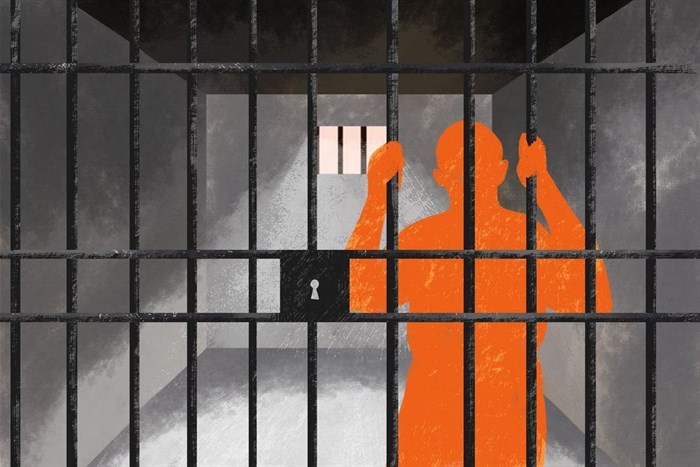
Subscribe & Follow
#AfricaMonth
In the news
Thousands of non-violent offenders due for early release from prison

- Last week the President announced remission for non-violent offenders in South African prisons to alleviate chronic overcrowding and improve prison conditions.
- More than 24,000 prisoners are likely to be released, including 3,000 people to be deported.
- This comes after a fire at Kutama Sinthumule prison in Limpopo pushed total prison occupancy to 147% of capacity.
- The announcement also comes as legal action was about to be taken to force the government to decide on voluntary deportation of foreign prisoners.
Last week President Cyril Ramaphosa announced remission for non-violent offenders in South African prisons to alleviate the 43% overcrowding in the country’s 342 correctional centres and 218 community centres. More than 24,000 prisoners are likely to be released, including 3,000 people to be deported.
The announcement came as dozens of Zimbabwean prisoners in Pollsmoor prison in the Western Cape planned to embark on a hunger strike in apparent protest at living conditions, xenophobic attacks and denial of parole.
Pollsmoor is South Africa’s largest prison and one of the most overcrowded.
GroundUp understands the hunger strike was called off once prisoners received news of the possibility of early release.
Explaining the reasons for the decision, Ramaphosa said the recent fire at Kutama Sinthumule prison in Limpopo meant a loss of 3,024 beds and a 4% increase in overcrowding, raising prison occupancy to 147% of capacity. There are about 212,200 inmates, including about 9,300 foreign nationals in South Africa’s prison facilities.
Overcrowding “poses a direct threat to inmate health, security, and management, and it could lead to a surge in gangsterism. More importantly, it hampers the department’s ability to provide development and rehabilitation programmes,” said Ramaphosa.
Offenders who will not be eligible for early release include those serving life sentences, sex offenders, those guilty of tampering with essential infrastructure and those declared dangerous criminals.
Those convicted of non-violent and non-sexual crimes will be eligible for 24 months of remission, provided they complete a “pre-release programme and risk assessment” and provide fingerprints and DNA samples for comparison with the South African Police Service database.
GroundUp understands that remission means that the eligible prisoners with two years or less left of their sentence will be released, but we have been unable to get precise clarity.
More than 24,000 inmates, including 15,000 who are under correctional supervision and parole, will be released. This includes about 3,000 foreign nationals serving short-term sentences, who will be deported.
The president’s announcement came just days before the Zimbabwe Exemption Permit Holders Association (ZEPHA) launched an application in the Pretoria High Court seeking to set aside the state’s inaction in making a decision on the release of Zimbabwean prisoners eligible for parole.
Legal counsel for ZEPHA, advocate Simba Chitando, says thousands of Zimbabweans in South African prisons are eligible for parole and are eager to return to Zimbabwe upon release.
“We welcome the [President’s] decision to facilitate the parole and deportation of thousands of foreign prisoners, including Zimbabwean nationals, who have previously been denied parole on the grounds of their legal status in South Africa,” said Chitando.
ZEPHA had instructed Chitando to approach the Pretoria High Court on 11 August and effectively ask it to force the government to make a decision on the release on parole and voluntary deportation of foreign prisoners.
“As a result of the 11 August 2023 decision by the President of South Africa to facilitate the voluntary deportation of foreign prisoners, ZEPHA shall not pursue legal proceedings against the South African government. This position shall change should the South African government fail to process the voluntary deportation of foreign prisoners within a reasonable time,” said Chitando.
A voice note last week by a Zimbabwean prisoner in Pollsmoor says a group of more than 50 foreign nationals were planning a hunger strike to draw attention to their complaints, such as poor living conditions, xenophobia and inaction on their parole hearings.
This article was originally published on GroundUp.
© 2023 GroundUp. This article is licensed under a Creative Commons Attribution-NoDerivatives 4.0 International License.
Source: GroundUp

GroundUp is a community news organisation that focuses on social justice stories in vulnerable communities. We want our stories to make a difference.
Go to: http://www.groundup.org.za/











